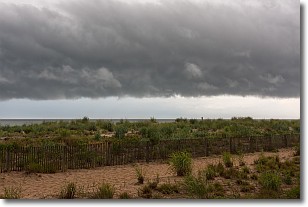Weather Alert in Montana
Flood Advisory issued April 28 at 5:38AM MDT until April 28 at 12:15PM MDT by NWS Billings MT
AREAS AFFECTED: Carbon, MT; Stillwater, MT; Sweet Grass, MT
DESCRIPTION: * WHAT...Minor flooding of small streams and low lying areas caused by excessive rainfall is expected. * WHERE...A portion of south central Montana, including the following counties, northwestern Carbon, southern Stillwater and central Sweet Grass. * WHEN...Until 1215 PM MDT Monday. * IMPACTS...Minor flooding in low-lying and poor drainage areas. Rises in small streams and normally dry coulees. Water may flow over roadways. * ADDITIONAL DETAILS... - At 533 AM MDT, 1 to 3 inches of rain has fallen since last evening in the advisory area. Light to occasional moderate rainfall continues early this morning, and is forecast to continue into mid day. This additional rainfall will likely produce minor flooding within the advisory area. - Additional rainfall amounts of half an inch to an inch are expected over the area. - Some locations that will experience flooding include... Red Lodge, Columbus, Joliet, Absarokee, Fishtail, Roscoe, Dean, Luther, Cooney Reservoir State Park, Nye, Roberts, Fox, Boyd and Mc Leod. - http://www.weather.gov/safety/flood
INSTRUCTION: Turn around, don't drown when encountering flooded roads. Most flood deaths occur in vehicles. Do not drive on or attempt to cross flooded roads, find an alternate route. Roads and driveways may be damaged or washed out in places. Be especially cautious at night when it is harder to recognize the dangers of flooding. Please report observed flooding to local emergency officials and request they pass the information to the National Weather Service in Billings.
Want more detail? Get the Complete 7 Day and Night Detailed Forecast!
Current U.S. National Radar--Current
The Current National Weather Radar is shown below with a UTC Time (subtract 5 hours from UTC to get Eastern Time).

National Weather Forecast--Current
The Current National Weather Forecast and National Weather Map are shown below.

National Weather Forecast for Tomorrow
Tomorrow National Weather Forecast and Tomorrow National Weather Map are show below.

North America Water Vapor (Moisture)
This map shows recent moisture content over North America. Bright and colored areas show high moisture (ie, clouds); brown indicates very little moisture present; black indicates no moisture.

Weather Topic: What are Shelf Clouds?
Home - Education - Cloud Types - Shelf Clouds
 Next Topic: Sleet
Next Topic: Sleet
A shelf cloud is similar to a wall cloud, but forms at the front
of a storm cloud, instead of at the rear, where wall clouds form.
A shelf cloud is caused by a series of events set into motion by the advancing
storm; first, cool air settles along the ground where precipitation has just fallen.
As the cool air is brought in, the warmer air is displaced, and rises above it,
because it is less dense. When the warmer air reaches the bottom of the storm cloud,
it begins to cool again, and the resulting condensation is a visible shelf cloud.
Next Topic: Sleet
Weather Topic: What is Snow?
Home - Education - Precipitation - Snow
 Next Topic: Stratocumulus Clouds
Next Topic: Stratocumulus Clouds
Snow is precipitation taking the form of ice crystals. Each ice crystal, or snowflake,
has unique characteristics, but all of them grow in a hexagonal structure.
Snowfall can last for sustained periods of time and result in significant buildup
of snow on the ground.
On the earth's surface, snow starts out light and powdery, but as it begins to melt
it tends to become more granular, producing small bits of ice which have the consistency of
sand. After several cycles of melting and freezing, snow can become very dense
and ice-like, commonly known as snow pack.
Next Topic: Stratocumulus Clouds
Current conditions powered by WeatherAPI.com




